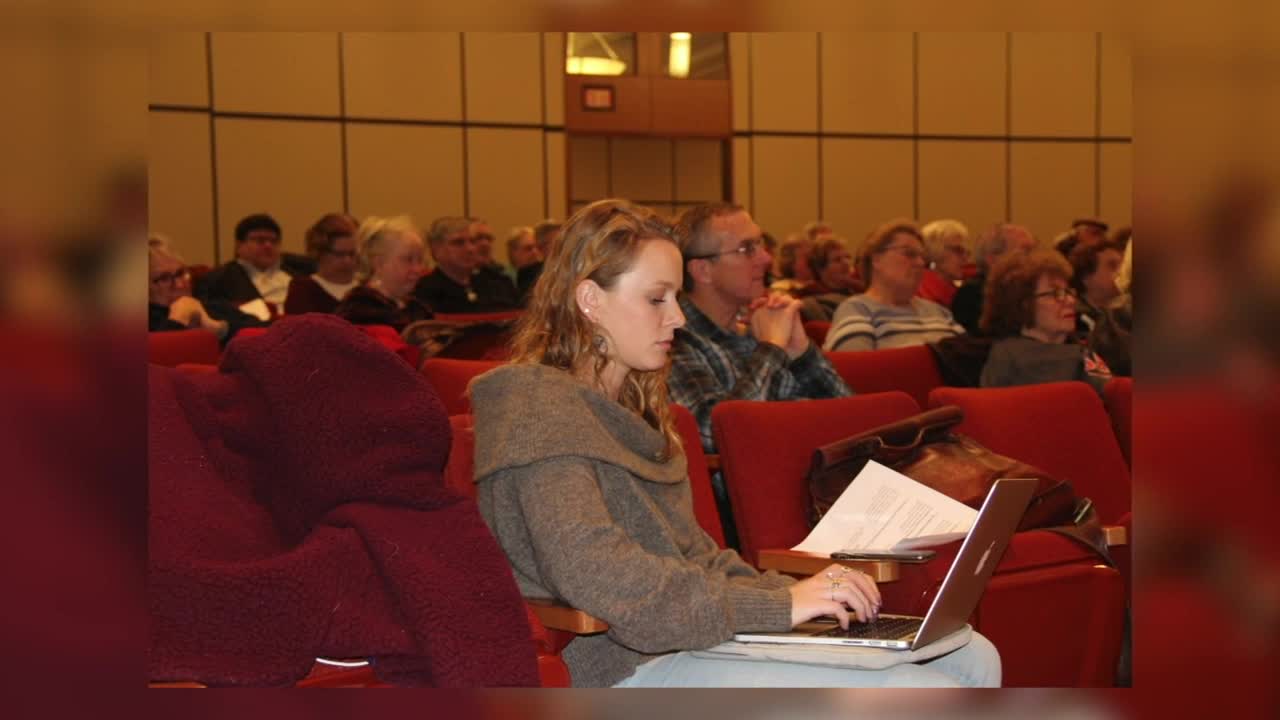Jaylyn Fahey, who just graduated from UW-Milwaukee, thought she was well-prepared to find a job in the journalism/media industry.
"I've interned for Milwaukee Magazine, as well as for the Wisconsin Jewish Chronicle," Fahey said.
She also tried to get a jump on the job search.
"I started applying for jobs back in February," Fahey said. "I've been mostly applying for print reporting jobs, or digital content writing jobs."
Fahey said she's sent out almost 90 job applications.
She heard back from eight potential employers and had three interviews.
After missing out on those positions, she noticed the call-backs have dried up since the COVID-19 pandemic arrived in the U.S.
"When all this started, I stopped getting calls and started getting more emails about how the position I applied for was no longer available," Fahey said.
She worries many employers are holding off on filling open positions until they have a clearer picture of what the American economy will look like going forward.
Rebekah Pare, Associate Dean of the College of Letters and Sciences' Career Initiative and Success Works at the UW-Madison, said Fahey finds herself in a relatively common position these days.
"Compared to last year, there are many fewer opportunities," Pare said. "At this time last year, my career officers were helping students negotiate multiple offers.This year, we're just hoping to get an offer for every student."
So far, Pare has noticed offers for jobs as part of internships being rescinded more frequently than full-time job offers.
She said many students are fortunate they have jobs lined up because the hiring cycle for spring graduates started in the fall.
Although that's not the case for all industries.
"If you think about working for a nonprofit, for example, those organizations are more likely to hire as positions come open, and not with such a long lead time," Pare said.
Pare said software development, data analytics, and finance stand out as career areas that still seem to be hiring.
"We're also seeing some hiring opportunities in manufacturing," she added, "But certainly not as many. We're also seeing some opportunities in K-12 education and also in some nonprofits."
- Resources You Can Use To Get Through The COVID-19 Pandemic
- We're Open: These Restaurants Are Offering Carryout, Delivery
- FULL COVERAGE: Coronavirus News And Resources You Can Use
Pare said the retail industry has been "devastated." She said marketing and communications jobs have also taken a serious hit.
Adding to the strain on students hoping to work in those industries, Pare said traditional back up plans for new graduates looking for work are also seriously limited due to COVID-19.
"Nannying, food service jobs, part time retail work, all those ways students would have been getting by, those opportunities are closed," Pare said.
Fahey said, with no reliable source of income, her plan is to continue to apply for jobs while living at home with her parents.
"I obviously don't have enough money to live on my own right now," Fahey said.
Pare offered the following advice to students, like Fahey, who may be getting frustrated or discouraged with the job search: Recalibrate expectations Don't take a job just because it's available and you're panicked Do your best to continue building your skills and experience this summer - even if it's on your own with no job or internship Reach out to your university's career center for help and guidance.
"There may not be as many opportunities, in as many fields, as we were hoping for," Pare said. "But if students can really buckle down, really get their personal brands in place, get ready with the preparation they need to do for interviews, most of those students have skills and experiences that will allow them to thrive."
"They just need to be resilient right now," she added.



